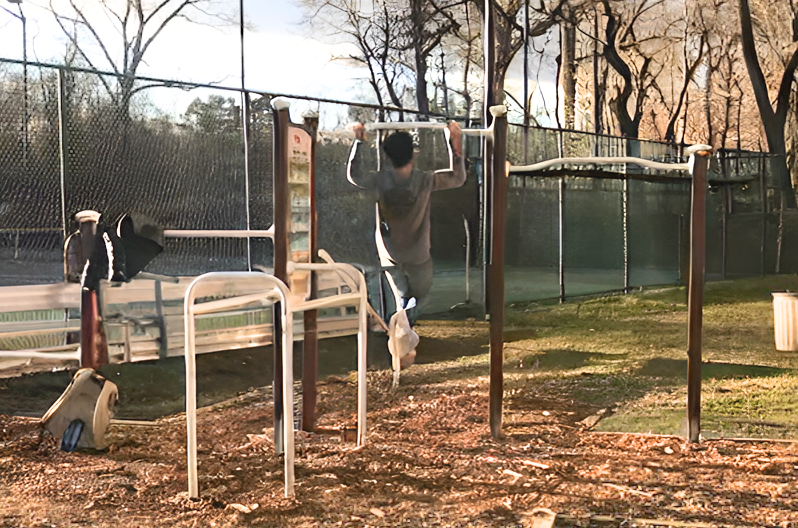How the RIGHT Extracurricular Can Help College Applicants
“What extracurriculars will give my child the best chance of getting into college?” As an independent educational consultant (IEC), I hear this question often. I suspect that my answer is pretty unsatisfying. Students should do what they enjoy. I’m not a proponent of picking a sport like fencing, say, just because “’[a] way with a sword can help students stand out in the college admissions game.’” If you hate fencing, you’re unlikely to excel. And then you’re unlikely to stand out. For students who want to stand out while pursuing authentic passions, I have two words: impact projects. (They’re also called passion projects.) In this article, you’ll learn what an impact / passion project is, why your child might want to do one, when and how they should get started.
An impact project won’t guarantee admission to the Ivy League, of course. But, as an independent educational consultant, I’ve seen highly selective colleges accept students who completed amazing impact projects (passion projects) but whose scores were below the schools’ medians.
What’s an impact / passion project?
In my upcoming Queens Public Library talk, “Impact Projects: How to Stand Out in the College Admissions Process,” I define impact or passion projects as an extracurricular activity that emerges from a student’s authentic passions. Additionally, an impact project demonstrates a student’s ability to be self-directed and take initiative.
Most college admissions officers and independent education consultants concur that this is a great way to approach extracurriculars. As Grant Gosselin, Boston College’s Director of Undergraduate Admission, told Forbes.com, “By exploring genuine, authentic interests as you move through high school, you'll learn a lot about yourself and will be best able to showcase your talents to colleges when the time comes.”
As an independent educational consultant, I’ve mentored a variety of students’ impact or passion projects. One aspiring Eagle Scout wanted to build an outdoor fitness center for his town. I guided him through creating a budget and identifying funding sources and local authorities he’d need to contact. Another student conducted original psychological research on elementary students in the tutoring program she founded. The possibilities for impact / passion projects are endless.
Photo from Scarsdale10583.com / Altered by Dominique Padurano in Canva
Why engage in an impact / passion project?
Unlike activities organized and led by adults, impact / passion projects require a student’s leadership. A successful impact / passion project is never smooth. It requires flexible thinking and nimble emotional responses to setbacks. As such, impact projects showcase a student’s evolving problem-solving abilities, creative thinking, and maturity.
As an independent educational consultant, I know that colleges are looking for students who will thrive in and outside of their classrooms. There’s no better way to demonstrate that promise than through an impact / passion project. That’s especially true for the student whose grades might not reflect their potential. Impact / passion projects provide them another opportunity to shine.
More important, impact / passion projects prepare students for the type of independent work they’ll do as college students. With fewer than half of college students earning a bachelor’s degree in four years, learning how to “do” college before you get there is invaluable.
When is the best time to start an impact / passion project?
Because a project that creates an impact takes time to plan and execute, I believe the optimal time to start is during the sophomore year. Freshmen are rarely mature enough to conceive an impact / passion project, let alone execute one. Of course, there are exceptions to every rule. If you think your freshman is mature enough, let them try!
On the other hand, junior year is sometimes too late to start an impact / passion project. Many of the best projects take longer than one school year. Juniors may still be working on their project by the time it comes to apply for college as a senior. However, as an independent educational consultant, I’d encourage motivated juniors to go for it. They can still discuss their ongoing progress in their college essays.
How can I get started on an impact project?
Self-directed students can conduct an impact completely on their own. One former SAT student, for example, used his 3D printer to create face shields for local health care workers during the early days of the COVID pandemic.
However, that student was pretty remarkable. He’d already founded several businesses and non-profit organizations!
Photo from abcnews.com
Most students will require a mentor, at least to point them in the right direction. While not a typical role for an independent educational consultant, I’ve mentored many students’ impact / passion projects. My varied academic background has proven useful to students who have conducted academic research. (For my degrees and a list of my students’ publications, see www.crimsoncoaching.com/about.) In addition, my extensive teaching experience enables me to provide the structured support and cheerleading that most students who engage in any long-term project need.
So, there’s no EASY answer to “What extracurricular should my child do to get into college?” However, the RIGHT extracurricular — impact / passion projects — can do more than get them in. They can prepare them to thrive once they’re in college! Please drop me a line if you’re interested in discussing how I might mentor your child through conceiving and executing an impact / passion project. Or register for my live webinar on March 14 to learn more! Hope to see or talk to you soon!


